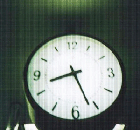Top Biz News
Safety of food chain ensured at source
By Wang Yan and Shan Juan (China Daily)
Updated: 2010-02-23 07:53
 |
Large Medium Small |

Regulation aims to strengthen supervision of animal feed
Controls on animal feed will be tightened to ensure animal health amid efforts to restore public confidence in food safety.
Animal raisers face a fine of up to 50,000 yuan ($7,320) for improper use of feed and additives, including practices such as adding illegal materials to animal feed and feed additives, and using meat and bone meal for ruminant livestock feed, according to a draft regulation made public over the weekend to solicit public opinion.
The draft regulation also stipulates that animal feed and feed additive companies are obliged to immediately recall products upon discovery of any defect that may harm animals or people.
Other stipulations in the draft include those covering imports and exports. For example, foreign companies are only allowed to sell feed and additives in China through domestic branches or local agents.

The full text of the draft regulation can be found on the website of the State Council Legislative Affairs Office, and feedback can be sent before March 15.
The office said the draft regulation is to meet the increasing public demand for better quality and safety of animal products.
Safety issues dogging the feed industry include illegal additives, lack of quality and safety controls over the production process, and light punishment for offenders, the office said.
"The most common illegal feed additives are protein materials," Wang Dingmian, former chairman of the Guangdong Provincial Dairy Association, told China Daily yesterday.
He said the reason is that the protein level is a major indicator in feedstuff tests.
"The higher the protein level, the pricier the feed."
He said although not all protein additives may result in harm to animals or people, unregulated usage of such materials could lead to other problems.
"Animal feed is the source of the food safety chain. Unregulated feed additives may lower the quality of animal products like meat and milk," he said.
Wang mentioned that after the melamine-tainted milk crisis in 2008, which led to the death of at least six children and sickened over 300,000 others, some of the milk which was not confiscated was sold to feed companies.
"It is dangerous because once melamine goes into animal feed, it runs along the food chain and may finally end up in human bodies," he said.
"So the government is taking action from the starting point," Wang said.
Dairy products are the only animal-sourced material allowed in feed and feed additives, according to the draft.
| ||||
Citing the mass food poisoning case last year in Guangdong province, he said: "About 70 people fell ill after eating organs, mainly liver, harvested from pigs fed with the banned chemical clenbuterol," he noted. Clenbuterol, which is poisonous to humans and could be fatal, is used to prevent pigs from accumulating fat.
Also, malachite green, the chemical which battles fish parasites and fungal infections, is still used in fish farms despite a government ban imposed in 2002, Yan said.
"Some farmers continue to use antibiotics because they are cheap and effective," he said.
With the residue passing to humans through the food, it would raise bacterial resistance and make drugs less effective for treating various human infections.













